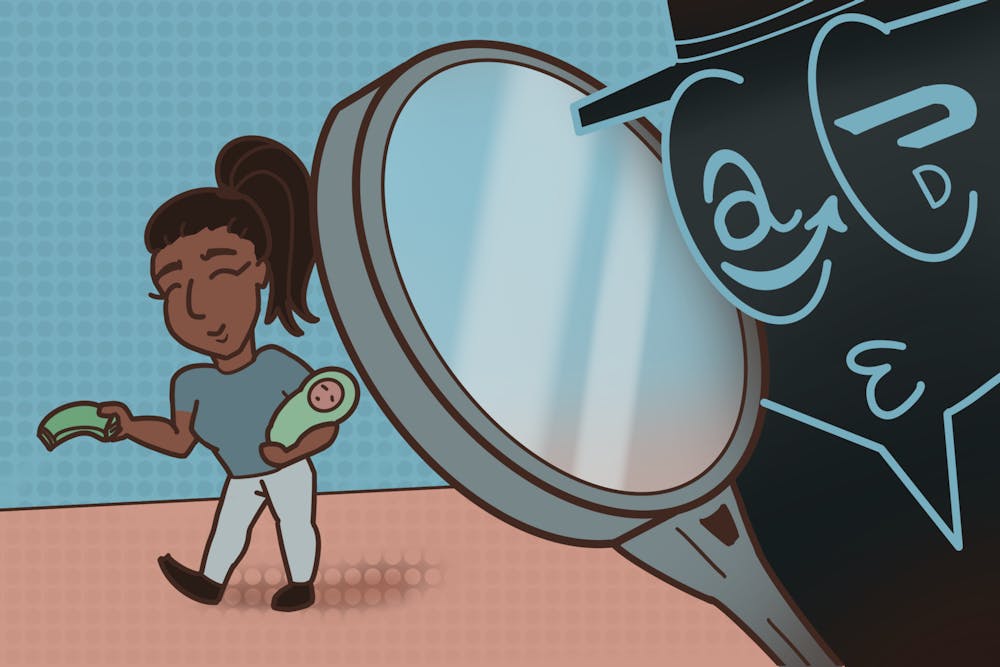The grocery store can be a long trek for busy college students, and many products are just a click away. But in the era of targeted ads and surveillance pricing, many students are weighing convenience and counting pennies.
Surveillance pricing is the practice of using a consumer's location or browser history to target them with different prices for the same goods and services.
Even something as tiny as the movement of your mouse while you browse a website can alert companies of your interest, sending a whirlwind of targeted ads your way.
The best way to combat this practice might just be grocery shopping in person.
"I've been compared to a middle-aged person when I go grocery shopping," said Aishwarya Sajeesh, a sophomore studying applied biological science. "I compare the prices of eggs, meat and fruit because everything changes quite often."
Students like Sajeesh, who lives close to the West Valley campus, often spend most of their budget on food. While Sajeesh saves money by restraining herself from buying things she doesn't need and not ordering food from delivery apps, other students prioritize convenience more.
"It's more convenient for me to click the first thing I see," said Melissa Hlomatchi, a sophomore studying kinesiology who lives on the Downtown Phoenix campus.
Christopher Rivera, a freshman studying information technology who lives on the Polytechnic campus, also recommends budgeting by using meal swipes and M&G at the POD to save actual money and still buy things that are necessary.
Much like Sajeesh, Rivera also prefers to go to the grocery store instead of ordering things online to save money.
Jack Stinson, a senior studying environmental design and biological sciences who lives on the Tempe campus, said his goal is to not spend more money than he earns.
"I try to be mindful of what I'm spending my money on," Stinson said. "I try to avoid things that are super impulsive."
Stinson also said he prioritizes spending his money on social experiences rather than purchasing things he doesn't need.
READ MORE: Alcohol prices are soon to rise with recent tariffs and may impact Sun Devil nightlife
The experience of being online includes the high possibility of your data being tracked. This possibility that an individual is being watched when they interact with websites while shopping online might be intimidating to some, but students seem to have developed thick skin when it comes to personalized advertising.
Stinson said he "doesn't really care" if his data is being tracked as long as it is not sensitive personal information.
Stinson also tells the story of how all his YouTube ads were in Spanish despite the fact that he does not understand or speak the language.
"I always joke that if they're tracking my data, they're not doing a very good job at it," Stinson said.
Hlomatchi feels differently; She said that she is uneasy about her activity being tracked. "It's definitely real," Hlomatchi said. "You say something with your friends, and then later it pops up on your feed."
Students seem to have developed several ways of dealing with being digitally monitored and learning ways to save money. Until the algorithm learns to grocery shop for them, going to the grocery store is a fate they can't be saved from.
Edited by Andrew Dirst, Sophia Braccio and Natalia Jarrett.
Reach the reporter at ktale@asu.edu and follow @KasturiTale on X.
Like The State Press on Facebook and follow @statepress on X.
Kasturi is a sophomore studying journalism. This is her third semester with The State Press. She has her own blog and has worked in creative writing.




